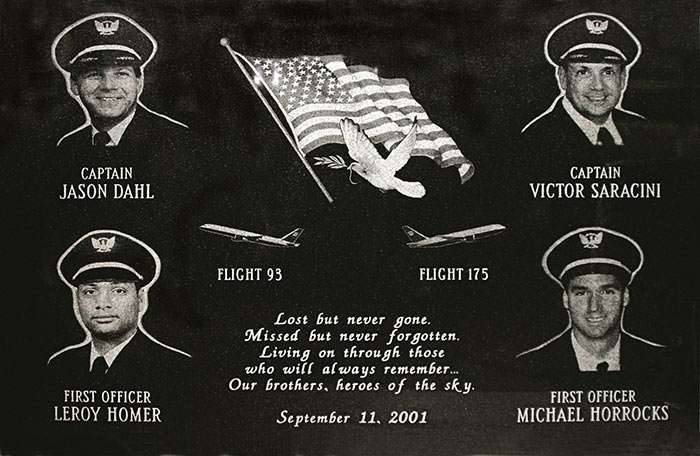Leadership From the Flight Deck
Capt. Victor Saracini, First Officer Michael Horrocks, First Officer LeRoy Homer, and Capt. Jason Dahl; Four ALPA members lost on September 11, 2001; Four extraordinary men still making a powerful impact on the lives of countless others.
It’s no secret that aviation today is the safest mode of transportation in the world. That incredible feat is due in part to a large coalition of key stakeholders, like ALPA, who work every day with industry and government to ensure that passenger and cargo air transport continues to maintain unprecedented levels of safety. One facet of that work includes keeping a close watch on how technology is being integrated into every aspect of aviation. Today, we are launching #TechTuesday, a new column here on Leadership from the Cockpit, to highlight the vital ways that pilots use technology on each and every flight, often unseen to the average passenger.
When Capt. Courtney Schoch planned a 2013 vacation to Nicaragua, she was looking forward to relaxing with friends on the pristine beaches along the northwestern coast. She never imagined the wide-reaching impact her trip would have on her own life and the lives of others.
This week in Washington, D.C., ALPA hosted its 62nd Air Safety Forum, an annual event that brings together airline pilots, subject-matter experts, and government and industry partners for in-depth discussions to drive improvements in aviation safety, security, and pilot health. During the four-day event, ALPA honored outstanding contributions by pilots and featured panels that addressed long-standing and emerging issues in key safety areas.
Guest Commentary by Sam Pool, Envoy Master Executive Council Chairman
Becoming an airline pilot has never been a cheap or easy proposition. It requires extensive education, training, and experience. The career tack for aspiring pilots is challenging—and expensive.
Logic would dictate that those who endure and succeed would be rewarded with pay and benefits that match the investment. However, many regional airlines are not adapting––starting pilot salaries at many remain less than $30,000.
Nowhere is this failure to adapt more evident than in the so-called “pilot shortage.” To be clear, there is no shortage of individuals qualified or interested in becoming qualified to fly airliners. However, there is absolutely a shortage of individuals willing to assume the responsibilities of an airline pilot for the compensation currently being offered. Compelling evidence indicates that this shortage can be mitigated––those airlines that offer higher compensation are having no problems finding pilots to fly their planes.




